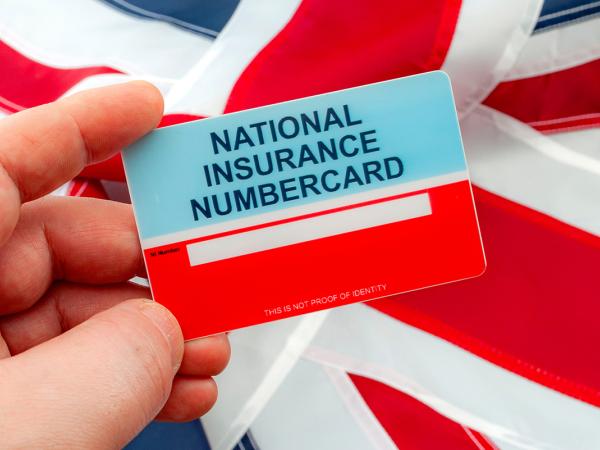Specified adult childcare credits
Many people – often grandparents – look after their relative’s children to allow the parents (or carers) to go out and work. This can mean they are not building up entitlement to the state pension. Specified adult childcare credits may be available to ensure state pension entitlement is preserved for these ‘family carers’.

Content on this page:
Specified adult childcare credits
Where the parents (or carers) receive National Insurance credits as a result of their child benefit claims, but they do not need them because they are paying NICs through their employment or self-employment they will have spare credits. These can be transferred to a relative who looks after the child to allow the parent (or carer) to work.
Even if the parent (or carer) has chosen not to receive the child benefit payments, perhaps because of the high income child benefit charge, they will still receive these National Insurance credits as long as they have claimed the child benefit. If the parent (or carer) has not claimed child benefit at all – whether because of the high income child benefit charge or for some other reason – then a claim for child benefit can only be backdated by three months. See GOV.UK for details of how to claim child benefit.
If transferred, these National Insurance credits are known as specified adult childcare credits. They can count towards the relative’s eligibility for a state pension, provided that the individual wishing to claim the credits did not have a valid election in place to pay reduced NICs.
Specified adult childcare credits could be very valuable where the relative has not yet reached the maximum number of years required for a full state pension; or they could help a relative qualify for some state pension where they had not met the minimum number of qualifying years for a state pension.
For individuals reaching state pension age on or after 6 April 2016, the number of years required for a full state pension is usually 35. The minimum number of years required for a partial state pension is 10.
Eligibility
Certain relatives can claim the credits provided all of the following conditions are satisfied for the relevant tax year:
- The relative providing childcare has not already reached state retirement age;
- The relative looks after a child or children under the age of 12 while the child or children’s parent or main carer is working (see below regarding socially distanced care);
- The relative does not already have a qualifying year in their own right through their own contributions or NIC credits;
- The relative is ordinarily resident in the UK;
- The parent (or carer) does not need the NIC credits from their child benefit claim for their own NIC record.
- Both the relative and the parent (or carer) make a joint claim at the relevant time (see below).
You can find a list of relatives that are able to claim the credits in the GOV.UK Specified Adult Childcare credits factsheet.
Checking if the parent needs the credits
As mentioned above, it is only possible to claim specified adult childcare credits if the parent or care who claims child benefit does not need them. The simplest way to know if the parent needs them is to check the National Insurance record of the parent or carer. They can only do this after the end of the tax year and the record may not be fully up to date until 31 October following the end of the tax year. We discuss this further below under the heading: How and when to claim.
In the meantime, you can get an indication by considering their pay from working.
Employees are treated as having paid NIC for pay periods in which they earn in excess of the lower earnings limit (£123 per week / £533 per month in 2024/25) in a single employment. They pay NIC once they earn in excess of the primary threshold in that employment. The primary threshold for the 2024/25 tax year is £242 a week (£1,048 a month).
Provided the children’s parents (or carers) earn enough over the year, they will make up a ‘qualifying year’ towards their state pension. Any pay periods when they earn less than the lower earnings limit are excluded, but in order to get a qualifying year they need to earn only £6,396 (in 2024/25) over the remaining weeks. That figure excludes any earnings over £967 in a single week.
If the parent has two or more employments at the same time – for example, two part-time jobs with employers that are not connected – then you must consider the earnings from each of them separately against the above thresholds. For example, if the parent earns £100 a week from each of two employments, then they will not pay NIC on either employment and the earnings will not count towards entitlement towards state benefits, even though they earn more than £123 a week in total across both employments.
For the self-employed, provided that they pay (or are treated as having paid) class 2 NIC for the whole year, that will give the parents (or carers) a qualifying year towards their state pension. See our page NIC for the self-employed for information on class 2 NIC, particularly since the way in which self-employed people are treated for class 2 NIC has changed from 2024/25 onwards.
How and when to claim
Both the parent/carer giving up the credits and the family member claiming them need to complete and sign the claim form CA9176. As noted above, this cannot be actioned until at least 31 October following the end of the relevant tax year. This means that you would have to wait until 31 October 2025 before you made the request for the tax year 2024/25. However, you could check for the 2022/23 tax year and earlier years, and from 31 October 2024 for the 2023/24 tax year.
Claims can be processed for as far back as the tax year 2011/12, so it is well worth making sure all relevant credits are claimed.
More information
It is the person who has claimed the child benefit who may be able to give up the NIC credits.
Other people who might claim the credits include the partner of the child benefit claimant. They would claim on form CF411A.
There is only one set of NIC credits to be transferred so if more than one person is eligible to claim, they need to agree who will claim.
You can read more about specified adult childcare credits on GOV.UK.



